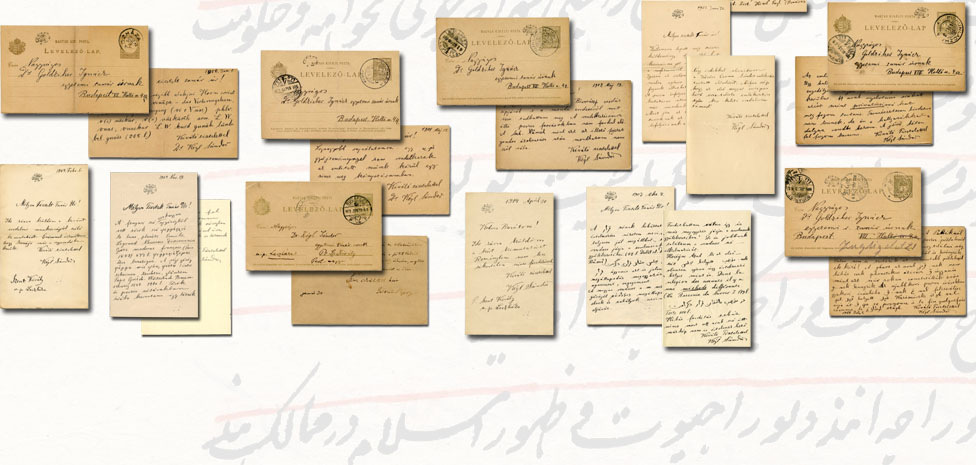
In his first letter (30.1.1891) Kégl expresses his gratitude to his master for his “benevolent criticism on his unpretentious first fruit”. By saying thanks to Goldziher for his comments, he asked him to present this essay at the Academy. Goldziher supported his student throughout all his life, and this work (Studies from the history of modern Persian literature) was also soon read at the Academy. What is more, Kégl could even attach some freshly printed copies of it to a letter of November 1892, praising the “superb typography”.
The following letter shows that the master of Kégl was deeply convinced of his thoroughness and professional preparation, as he asked him to collect some data in his own library for an article of Goldziher in preparation. 2 Kégl dedicated three long letters (11, 15 and 20.6.1892) to this issue. Goldziher also later asked him to check out in his library some classical quotations (1.11.1894), word paradigms (1.6.1900) or even books (18.5.1901, 19.5.1902, 1.7.1905). Their interests, however, only partly coincided, so Kégl could not always help.
On 2 July 1892 the proud young scholar sent his first German language publication 3 to his former professor, by asking him “not to judge too severely his German”.
In 1892 Goldziher was elected an ordinary member of the Academy. He sent a copy of his inaugural dissertation 4 to Sándor Kégl who, by saying thanks for the consideration in a letter of 20.3.1893, took the opportunity to express his views on the differences between the poetry of a range of Eastern people. This letter also attests that he followed with attention the international literature.
Goldziher later sent him a lecture held in memory of Alexander Csoma de Kőrös. 5 Kégl, by acknowledging with pleasure its receipt, noted that the research of the various impacts on Islam opens up new perspectives in Islam studies, which will soon change our view of Islam (22.6.1903).
The scientist and polemist Kégl is reflected in those letters where he defends his position against criticism. His skills in a large number of languages provide him with a legitimate self-confidence in the question of Iranology of which at that time he was the best specialist in his homeland (17.9.1898, 8.10.1907).
Goldziher was always aware of his professional expertise and reliability. This is why in 1905 he asked Kégl to substitute him in delivering his Arabic lessons at the university. However, the scope of possibilities of Kégl as a private lecturer was very limited at the university, therefore in his reply on 2.12.1905 he informed Goldziher that he would deliver the lessons “privatissimi”.
Sándor Kégl was faithfully supported throughout all his life not only by
Ármin Vámbéry, but also by Ignác Goldziher. He supported him in achieving his
academic position: this is why he sent to Kégl his bibliography necessary for
the recommendation of membership (6.2.1904). In 1914 he was working in his
interest at the university and in the case of Oriental studies (30.4.1914).



